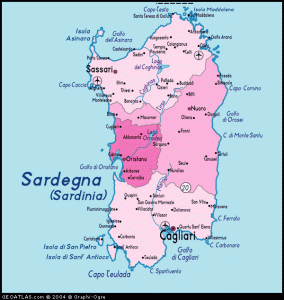Willie is the groundskeeper of Springfield Elementary School. In the original series, he comes from Scotland: the public can understand it both from his accent (which is really different from the one used by Springfield inhabitants) and from the kilt he often wears. Willie is solitary and aggressive and often talks about his Scottish rural life and childhood; he is “diverse”, he acts and speaks differently from the Springfield community and this fact is often highlighted.
It was difficult to recreate all the features of this character in the Italian version of the show: in fact, the translators had to recreate Willie’s solitary and aggressive nature, which in the U.S. version correspond to the stereotype of Scottish people. “The fundamental difficulty that the Italian translator and dialogue writer encountered was the fact that the Scottish stereotype in Italy does not correspond to the characteristics that Willie presents.” In fact, Italians think that the Scottish people are red-headed, avid people who drink a lot; therefore, the Italian stereotype cannot correspond to Willie’s nature and his constant reference to rural childhood. The solution adopted by the translators was drastic: they completely changed Willie’s country of origin. In the Italian version, in fact, he comes from Italy or, more precisely, from Sardinia!
Why did they choose this solution? The translators and dialogue writers decided to transfer Willie’s Scottish stereotype to another country (region, in this case) whose stereotype fits the same characteristics for the Italian audience.
“Today Sardinia is one of the most exclusive and expensive locations for tourism in Italy, but in the stereotypical view of Italians it still remains isolated and it is seen as very rural; traditional representation of people from this region figures a rustic lifestyle and people usually working as shepherds.” Therefore, Willie’s origins from Sardinia correspond to his nature more than his origins from Scotland for the Italian public, because Sardinians are viewed as rural and solitary (the region is the most isolated one from the peninsula) which actually are Willie’s most important characteristics.
This process of drastic modification is an example of domestication and re-territorialization of a character. In fact in the Italian show, Willie is literally transferred to Italy: he speaks with a Sardinian accent and always says that he comes from Sardinia. When in the American show Willie talks about his Scottish origin, in the Italian version this is always changed by talking about Sardinia.
The major problem faced by the dialogue writers has been the fact that Willie often wears a kilt, which is a typical and undeniable reference to Scotland. Sometimes this element is simply ignored in the Italian translation, while sometimes it is considered as a skirt; it is actually used as an element that adds oddity, strangeness and diversity to the character.
Just two episodes translated for the Italian audience presented insurmountable difficulties and ambiguity, because there were specific visual and linguistic references to Willie’s Scottish origins. The episodes are “Lard of the Dance” (“Tanto va Homer al lardo che…”) and “Monty Can’t Buy Me Love” (“Monty non può comprare amore”).
The first episode is more easily translatable because every piece of information or joke about Willie is based on language. In the episode Homer decides to enter the grease-recycling business and make money in this way; so he tries to steal Springfield’s Elementary school waste with Bart, but Willie discovers them. In order to defend himself and fool Willie, Homer pretend to be an exchange student from Scotland, so he starts talking with a marked Scottish accent. When he hears that Homer is also Scottish, Willie becomes excited and asks Homer where he comes from, and Homer answers that he comes from “North Kilt Town” and Willie is extremely happy because he says this is the same town he comes from and asks Homer if he knows Angus McLeod. The dialogue is funny because Willie talks with a marked Scottish accent and Homer tries to talk like him.
The entire dialogue is translated and transferred to the Italian context by substituting every reference to Scotland with a reference to Sardinia. Therefore, Homer affirms he comes from “Nord Pecurone” (an invented town, which literally means “North Big Sheep Town”) and Willie asks if he knows Salvatore Udda, which is a typical Sardinian name; the whole dialogue is characterized by a strong Sardinian accent. “The correspondence between North Kilt Town and Nord Pecurone, between Angus McLeod and Salvatore Udda and between the accents is accurate and very creative. In the first case the name of Willie’s hometown is based on very stereotypical traits: the kilt from Scotland and the sheep for Sardinia; similarly, the reference to Angus McLeod and Salvatore Udda is comical because the two names respectively sound undeniably from Scotland and Sardinia.” Therefore, the conversation is completely transferred into the Italian context by using a stereotype about Sardinia, which corresponds to the stereotype that Americans have about Scotland: this is a typical example of re-territorialization. Moreover the conversation has the same consequences both for the American and the Italian audience: confirming Willie’s origins from Scotland (in the U.S. version) and Sardinia (in the Italian version).
The other episode, “Monty Can’t Buy Me Love”, was more difficult for the translators and is ambiguous for the Italian audience.
It talks about a travel that Mr. Burns wants to do in Scotland: he is looking for the Loch Ness monster and wants to capture it and take it to Springfield. Mr. Burns forces Homer, Willie and Professor Frink to go and help him.
When they arrive at the lake, Homer sees an older couple that really looks like the groundskeeper Willie. The latter, in fact, says that those are his parents who own a tavern nearby and that he was “conceived, born and educated” there. For the American audience there is nothing strange or different from the previous episodes in this sentence, because they already know that Willie comes from Scotland.
But it’s not like that for the Italian audience. The Italian adaptation presents many difficulties for the translators, because the visual elements completely contradict what the audience previously learned about the character. First of all, the episode has plenty of references to Scotland, which are very explicit; secondly, the couple undoubtedly resembles Willie, so the Italian audience could wonder why Willie’s parents are from Scotland if he speaks Sardinian.
Instead of clarifying information about the character, the Italian dialogue increases the ambiguity about Willie. Only in this episode, in fact, his origin is changed to Scotland, but the translators made every person in the crowd speak with a Sardinian accent. In addition, after revealing that he was born in Scotland, Willie makes two “precise references to Sardinia that immediately transfer him back to the Italian context.”First, when Homer goes underwater and does not reappear on the surface for a while, Willie claims that Homer shows more “stubbornness” than a “goat from Gennargentu”; later in the episode, after Mr. Burns manages to capture the monster by himself, Willie says he is “stronger than Gigi Riva”.
Throughout these elements, then, Willie is immediately re-transferred into the Italian context.
All in all, we can say that the translators have been able to re-territorialize Willie’s character, especially at a linguistic level. The reason is that Sardinian is the only idiom in Italy which is not only a dialect, but a real different language, incomprehensible to other Italians. Therefore, Willie’s Sardinian origin and accents place him as an “outsider” and “diverse” from the Springfield community, which is the same role he plays in the U.S. version as a Scotsman.




